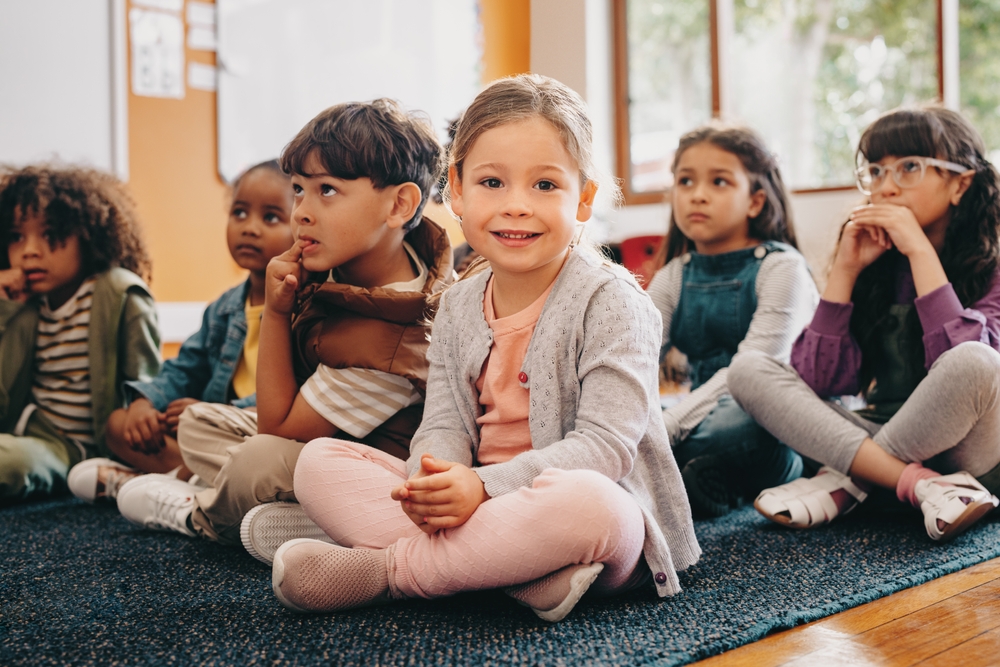The journey to lifelong learning begins early. According to the National Institute for Literacy, 90% of a child’s brain development happens before age five. That means the early years aren’t just important—they’re essential. At I’m Just a Kid, we know that early childhood education is one of the most powerful tools for building strong literacy skills. And we’re here to guide you through how it works—and how you can support it at home.
Why Early Childhood Education Matters
Early childhood education isn’t just about ABCs and 123s. It’s about creating a foundation where learning feels joyful, natural, and meaningful. These early experiences build the brain’s architecture and set the stage for future academic success.
When young children are exposed to stories, songs, conversations, and creative play, they begin to form connections between sounds, letters, words, and meaning. These are the building blocks of literacy. The earlier children are immersed in language-rich environments, the more confident and capable they become in communicating and understanding the world around them.
How Literacy Develops in Early Childhood
Literacy isn’t a single milestone—it’s a process. And it begins long before children learn to read.
Hearing Sounds and Words
Children first develop listening skills. Through reading aloud, songs, and rhymes, they begin to notice patterns in language. They recognize that sounds make up words and words hold meaning.
Exploring Letters and Print
Next comes letter recognition. Children notice that letters look different and that each letter makes a unique sound. This awareness is a key part of early childhood education and lays the groundwork for phonics.
Expressing Themselves
As children build vocabulary, they begin to form sentences and express ideas. Talking about stories, asking questions, and engaging in conversation strengthens comprehension and creativity.
Understanding Stories
Even before they can read, children can understand the structure of a story—beginning, middle, and end. Reading books with clear narratives helps children predict, imagine, and retell stories in their own words.
Practical Ways to Support Literacy at Home
You are your child’s first and most important teacher. Here’s how you can encourage literacy every day—no worksheets required!
1. Read Together—Every Day
Reading aloud is the single most important activity for developing literacy. Choose books with rich vocabulary and engaging illustrations. Ask questions. Let your child turn the pages. Make it fun!
Don’t just stick to storybooks—nonfiction books, poems, and even wordless picture books all count.
2. Talk About Everything
Narrate your day. Describe what you’re doing, what you see, and what you’re thinking. These casual conversations introduce new words and concepts in a natural way.
3. Encourage Drawing and Writing
Provide crayons, paper, and writing tools. Scribbles eventually turn into shapes, letters, and then words. Celebrate their effort—even if it’s just a single squiggle.
Label everyday items around the house. Seeing words in context boosts print awareness.
4. Sing, Rhyme, and Play Word Games
Silly songs and rhyming games sharpen phonemic awareness. The rhythm and repetition help children learn how language works.
Try classics like “Down by the Bay” or make up your own! Your child won’t just be giggling—they’ll be learning.
How I’m Just a Kid Fosters Literacy
At I’m Just a Kid, literacy is woven into everything we do. From circle time to play centers, our curriculum is thoughtfully designed to promote language development through hands-on, joyful learning.
We use tools like Zoo-phonics, interactive storytelling, sensory activities, and art projects to make language come alive. Our classrooms are print-rich environments filled with labels, books, visual aids, and opportunities to engage with words throughout the day.
But more than anything, we focus on relationships. Children learn best when they feel safe, supported, and heard. Our caring educators model language, ask open-ended questions, and encourage every child’s voice. Because when children feel confident speaking and expressing themselves, reading and writing naturally follow.
The Takeaway
When you prioritize literacy in your child’s early years, you’re giving them the best possible start. And it doesn’t have to be complicated—it just has to be consistent. Through daily reading, meaningful conversations, and opportunities to explore language in all its forms, your child can develop into a curious, confident communicator.
Early childhood education is a gift. One that nurtures not only academic success but also a lifelong love of learning.
Partner with I’m Just a Kid
At I’m Just a Kid, we’re passionate about empowering children through thoughtful, engaging, research-based early childhood education. Our programs are designed to support your child’s literacy development in a nurturing and dynamic environment.
Want to learn more about how we support early learning? Contact us today and discover how we can help your child grow through the power of play, language, and connection.
